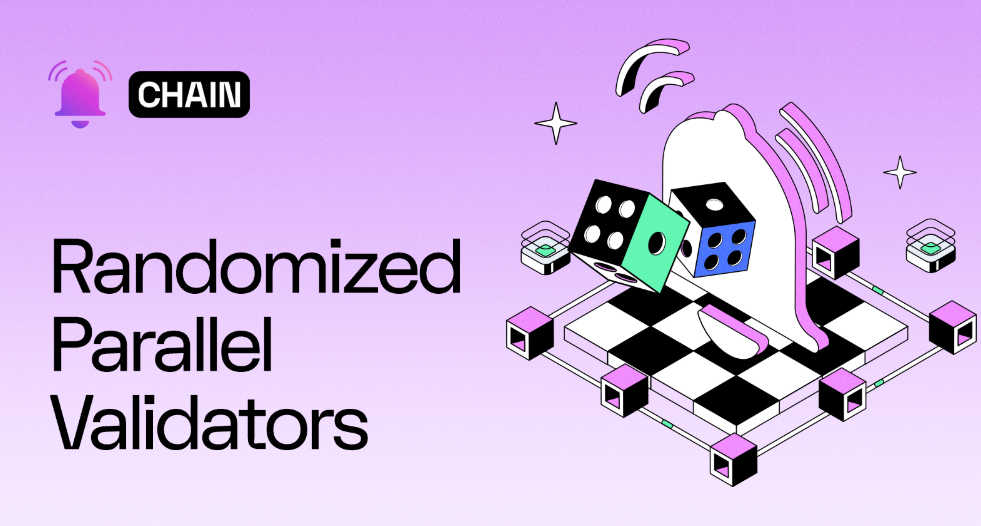Randomized Parallel Validators of Push Chain
 Poonam Thakur
Poonam Thakur
In decentralized networks, achieving security, fairness, and scalability without a central authority is a complex challenge. Push Protocol addresses this through its innovative Randomized Parallel Validators
mechanism, which leverages randomness to enhance network integrity and performance.
The Importance of Randomness in Decentralized Networks
Randomness is crucial in decentralized systems to ensure unpredictability in processes like validator selection and cryptographic key generation. This unpredictability prevents malicious actors from manipulating the system or gaining undue control. For instance, in Proof of Stake (PoS) mechanisms, random selection of validators ensures no single participant can dominate the process, preserving the network's decentralized nature. citeturn0search0
Understanding Push Nodes
Push Nodes form the backbone of the Push Protocol Network, facilitating secure and efficient communication within the Web3 ecosystem. The network comprises various node types, including Validator Nodes, Storage Nodes, and Archival Nodes. A smart contract governs the network, managing node staking and slashing mechanisms, with the PUSH token playing a central role in these processes. citeturn0search9
How Randomized Parallel Validators Work in Push Chain
The Push Chain incorporates randomness at multiple levels to prevent centralization and enhance resilience against attacks. A key security feature is the randomized selection of validators for transaction validation and block production. This process involves:
- Random Token Generation: Before submitting a transaction, the sender's SDK requests a randomly generated token from a validator. This token is created collaboratively, requiring signed random values from multiple validators to ensure unpredictability and security. citeturn0search7
- Transaction Submission: The SDK attaches the random token to the transaction payload and sends it to the network.
- Validator Selection: The network uses the random token to cryptographically determine which validator will process the transaction, ensuring an unbiased selection process.
- Attestation Process: The chosen validator randomly selects a set of validators to attest to the transaction's validity, further decentralizing the validation process and enhancing security.
This multi-layered randomization ensures that validator selection remains unpredictable and resistant to manipulation, thereby maintaining the network's integrity and fairness.
Benefits of Randomized Parallel Validators
- Enhanced Security: Unpredictable validator selection makes it difficult for malicious entities to influence the network, protecting against attacks like Sybil attacks or collusion.
- Improved Fairness: Random selection ensures all validators have an equal opportunity to participate, preventing centralization of power and promoting a balanced distribution of rewards.
- Scalability: By distributing validation tasks across multiple validators in parallel, the network can handle increased transaction volumes efficiently, reducing bottlenecks and improving throughput.
Real-World Applications
The implementation of Randomized Parallel Validators in Push Chain has practical implications:
- Decentralized Communication: Ensures secure and fair message validation and delivery within the Push Protocol Network, enhancing user trust.
- Financial Transactions: Provides a robust framework for processing transactions in decentralized finance (DeFi) applications, ensuring security and fairness.
- Supply Chain Management: Facilitates transparent and tamper-resistant tracking of goods and services by ensuring data integrity through randomized validation processes.
Conclusion
Push Protocol's adoption of Randomized Parallel Validators represents a significant advancement in decentralized network architecture. By integrating cryptographic randomness into validator selection and transaction processing, Push Chain enhances security, promotes fairness, and scales efficiently. This innovative approach positions Push Protocol as a leader in the evolution of secure and decentralized communication networks.
Subscribe to my newsletter
Read articles from Poonam Thakur directly inside your inbox. Subscribe to the newsletter, and don't miss out.
Written by
